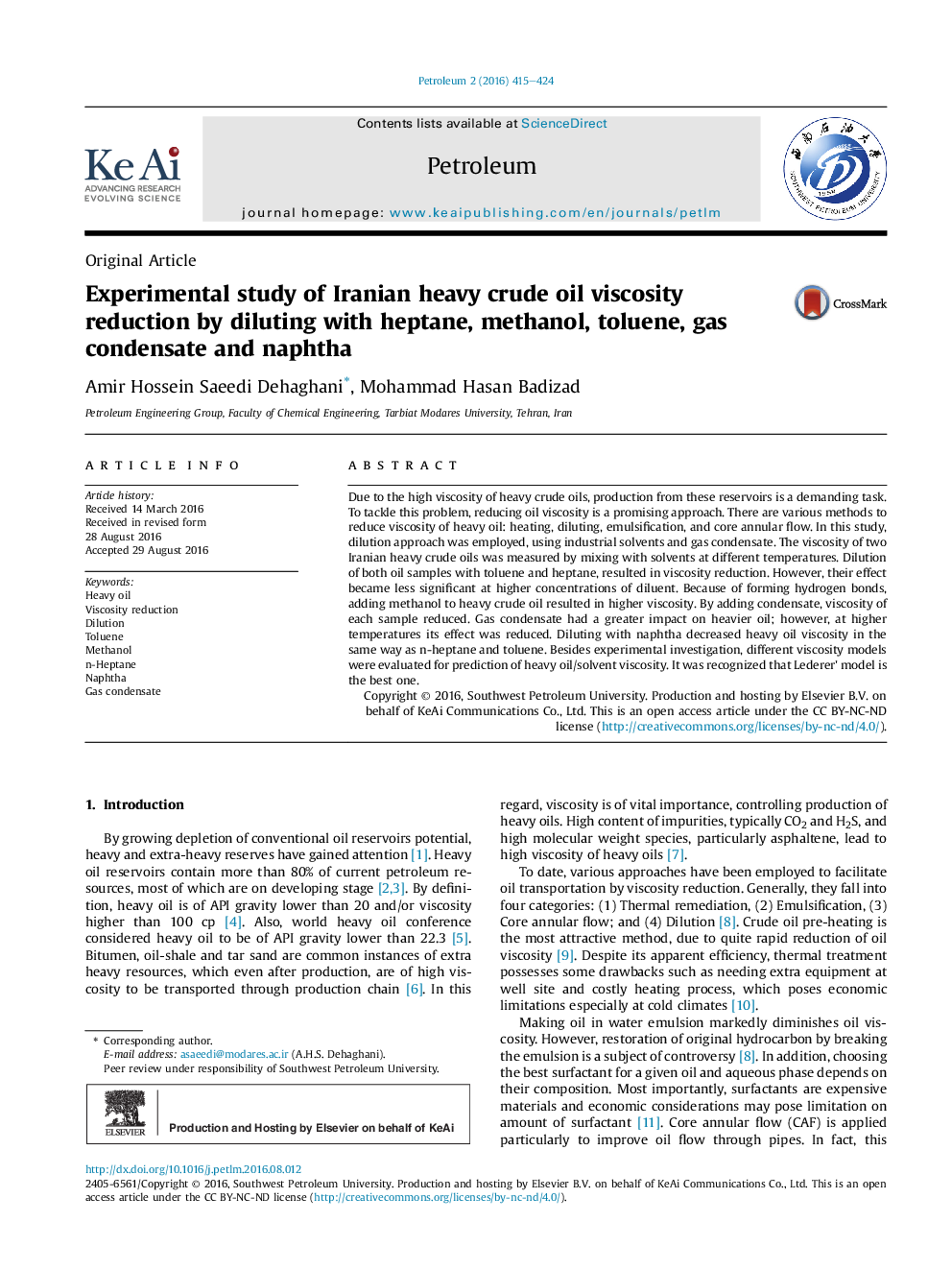| کد مقاله | کد نشریه | سال انتشار | مقاله انگلیسی | نسخه تمام متن |
|---|---|---|---|---|
| 5026534 | 1369870 | 2016 | 10 صفحه PDF | دانلود رایگان |
Due to the high viscosity of heavy crude oils, production from these reservoirs is a demanding task. To tackle this problem, reducing oil viscosity is a promising approach. There are various methods to reduce viscosity of heavy oil: heating, diluting, emulsification, and core annular flow. In this study, dilution approach was employed, using industrial solvents and gas condensate. The viscosity of two Iranian heavy crude oils was measured by mixing with solvents at different temperatures. Dilution of both oil samples with toluene and heptane, resulted in viscosity reduction. However, their effect became less significant at higher concentrations of diluent. Because of forming hydrogen bonds, adding methanol to heavy crude oil resulted in higher viscosity. By adding condensate, viscosity of each sample reduced. Gas condensate had a greater impact on heavier oil; however, at higher temperatures its effect was reduced. Diluting with naphtha decreased heavy oil viscosity in the same way as n-heptane and toluene. Besides experimental investigation, different viscosity models were evaluated for prediction of heavy oil/solvent viscosity. It was recognized that Lederer' model is the best one.
Journal: Petroleum - Volume 2, Issue 4, December 2016, Pages 415-424
